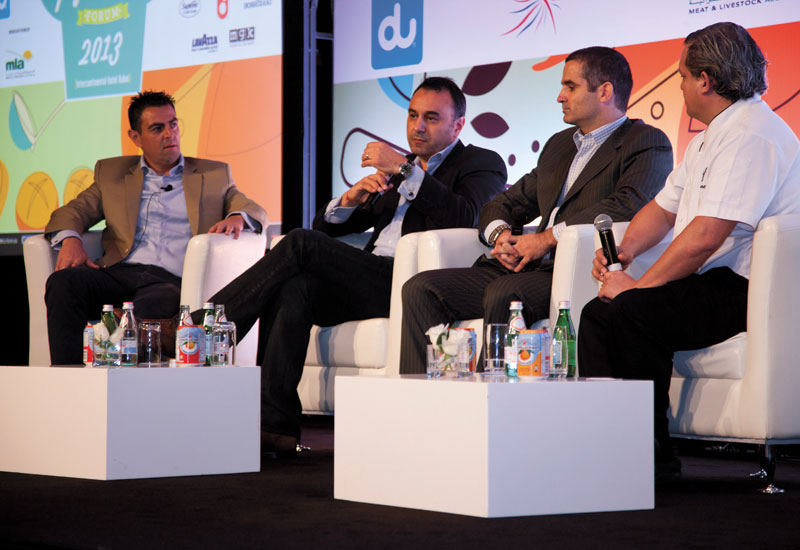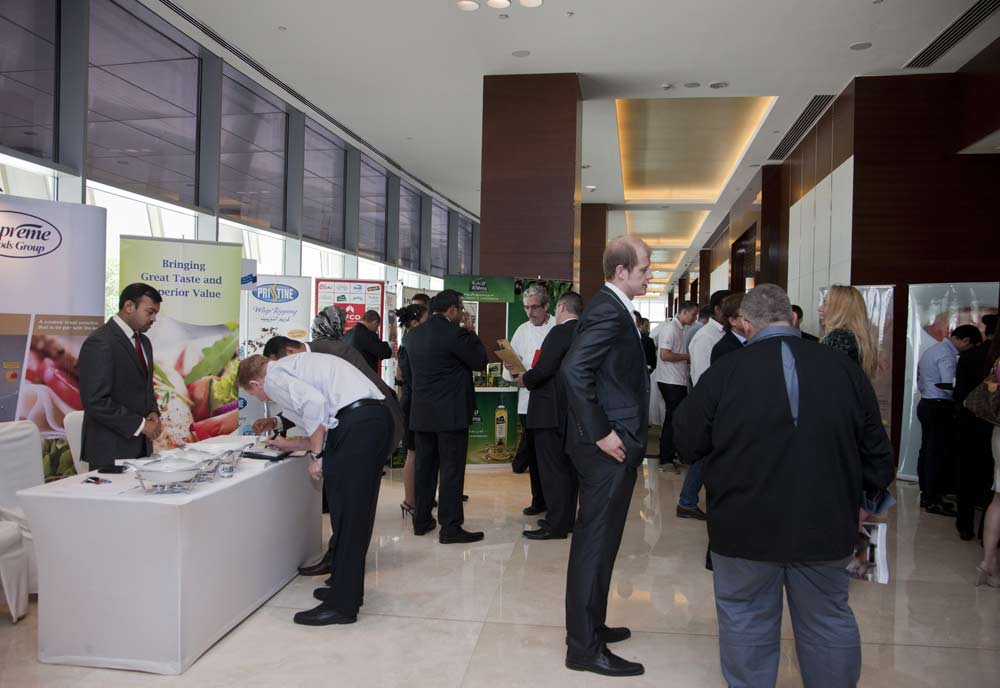 Delegates debate the importance of training in F&B at the Caterer Middle East Chef & Ingredients Forum.
Delegates debate the importance of training in F&B at the Caterer Middle East Chef & Ingredients Forum.
The most important thing for chefs is to “be aware when things are in season and build our menus around that”, according to him.
Gonzales said that customers, and in some cases, staff members are not educated on what ‘organic’ really means. The question we need to ask, he said, was how much of organic was really used on menus touting that concept. Frangie agreed and said a really small percentage of the market can tell the difference, and that organic food definitely looks, smells and tastes different.
The consensus of the panel was that if you have to fly food from outside the GCC then it loses its benefit. Frangie said: “It’s great if 80% of your menu is organic but if you’re flying it from South Africa or Asia the footprint is huge.”

| Advertisement |
Talking about experimental food, Sato declared this trend will always be there “but it will never be more popular or important than the flavour for food. Customers want their food to taste good; they’re the ones paying the money. If the chef forces his or her taste on the customer that will create problems for the business, what the customers wants, you have to give”.
Frangie said chefs have a duty to experiment, countering Herbert’s query about whether this spoils food. He said: “We are artists, we are taste curators. It’s our job to experiment. Maybe not with our customers, but in a test kitchen.”
However, Troesch warned: “Creativity is like a horse, you have to hold it back. If not, a good dish can get away from you, like a horse running too far.” Gonzales agreed and said sometimes simplicity is the best option for chefs.
Sato added: “There will always be those chefs who break the barriers, and there will be chefs who are cooking from the heart.”
GOING BIG
Large-scale catering is an important aspect, often overlooked in the F&B industry. But with the DTCM looking to double its exhibition industry, this aspect should be carefully considered. Moderated by Caterer Middle East editor Devina Divecha, the experts were Radisson Blu Dubai Deira Creek director of kitchens Uwe Micheel; Abela & Co corporate chef Colin Campbell; and, Dubai World Trade Centre director of kitchens — F&B production Harald Oberender.
A lot of interesting issues were dealt with including keeping the quality of food high while catering to a large number of people. Campbell said: “We prepare close to 12,000 meals a day and the budgets are always a concern — this business is very cost driven.”
Challenges are the name of this game, and Micheel said one of the biggest concerns is location, where a central location is easier to work with than a remote one. “Food safety is an issue as well. It’s about two key things: flexibility and planning. But in planning, the biggest challenge is to get the right people.”
Oberender said they face similar issues to restaurant chefs like ingredients and the supply chain. “Another thing is hygiene — this is dealt with quite differently across all Emirates. So the unification for this is on the horizon for next year; there was an announcement made about this, which would help us quite a lot.”
Transportation was a concern said Campbell. “There are always specific challenges with each client, but there’s always transportation. When you get to the premises, what do you have access to — the appliances and kitchen facilities, and the distance between kitchens to the end user, for example.”
Oberender said large-scale catering has to move up a notch. “We have to raise our standards with the support of the government, and our community. This will lead to an increase of business.”









 Search our database of more than 2,700 industry companies
Search our database of more than 2,700 industry companies









